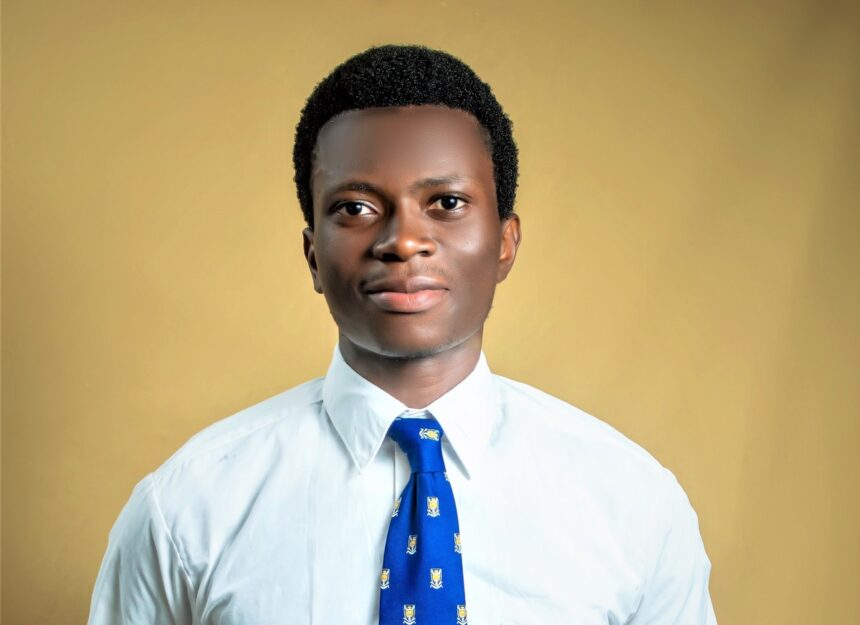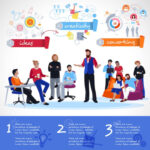Neurodiversity advocate and special education needs specialist, Boluwatife Joshua Ayanwole, has stated that building a supportive ecosystem for people with autism and other neurodevelopmental disorders will help curb the stigmatisation and isolation culture that society imposes on such exceptional individuals with the condition.
Ayanwole recently said this during a virtual panel session organized by the Institute of Neurodiversity (ION) with the support of the United Nations Department of Global Communications to commemorate World Autism Awareness Day (WAAD).
Themed ‘Advancing neurodiversity through the United Nations Sustainable Development Goals (SDGs)’, the event explored how autism and neurominority inclusion align with the UN’s SDGs ─ especially SDGs 3, 4, 8, 10, 11, 16 ─ and featured neurodiversity experts and advocates from across many countries.
Ayanwole was on a panel session titled ‘Inclusive education and SDG 4: Exploring inclusive strategies for autistic students in schools and universities and other educational establishments’, which featured neurodiversity experts Catherine Guimard (France), Maisa Obeid (UAE Jordan), Pallavi Mallick (India), Alia Booley (South Africa), Natasha Van Staden (South Africa), and Hazleen Ahmed (Singapore)
He noted that the panel inspired dialogues aimed at promoting inclusivity and driving actionable change, thereby contributing to the 2030 Agenda for Sustainable Development.
He added, “It also aimed at uniting stakeholders from around the world to raise awareness of the unique contributions and challenges faced by individuals with autism while advancing the global agenda for sustainable development.”
During the session, Ayanwole discussed strategies for supporting students and other individuals with autism, emphasising the importance of educational institutions fostering a supportive environment and implementing personalised learning strategies.
He suggested the establishment of mentorship programmes to provide assessments and support, as well as initiatives to promote social development and reduce isolation for people with neurodevelopmental disorders.
Portraying his points further on how to foster a supportive ecosystem for people with autism and other neurodevelopmental disorders in Nigeria and across the world, Ayanwole reiterated the need for an enabling environment that allows individuals with autism to thrive.
“There is a need to nurture that ecosystem to build more talented individuals with autism by cultivating their innate talents and skills, which may be in areas such as art, music, animation, etc.,” he said.
Pallavi Mallick (India) emphasised the critical role of teachers in creating inclusive classrooms for students with autism, stressing the necessity of understanding differentiation in teaching methods and the importance of accommodations and modifications. He added that continuous training for educators is essential to empower them to meet the diverse needs of students effectively.
Catherine Guimard (France) highlighted the gap between the rhetoric of inclusive education and its practical implementation, advocating for a shift in societal norms. She proposed a project-based learning model that incorporates multiple subjects, starting from kindergarten, to foster a more engaging and inclusive educational environment.
Maisa Obeid (UAE Jordan) discussed the need for inclusivity in education, suggesting that it should begin before children enter the classroom. She called for schools to provide clear information to parents about the accommodations available for children with autism and to promote awareness through social media.
Natasha Van Staden (South Africa) highlighted the need for personalised approaches, including sensory regulation through tools like noise-canceling headphones and emotional regulation techniques such as breathing exercises. She pointed out the value of community support networks in alleviating feelings of isolation among families.
The panel concluded that, though autism and other neurodevelopmental disorders are real and are found in virtually all societies if discrimination and stigmatisation against people living with these conditions are curbed, they will thrive and the world will be better for it.
ALSO READ TOP STORIES FROM NIGERIAN TRIBUNE






